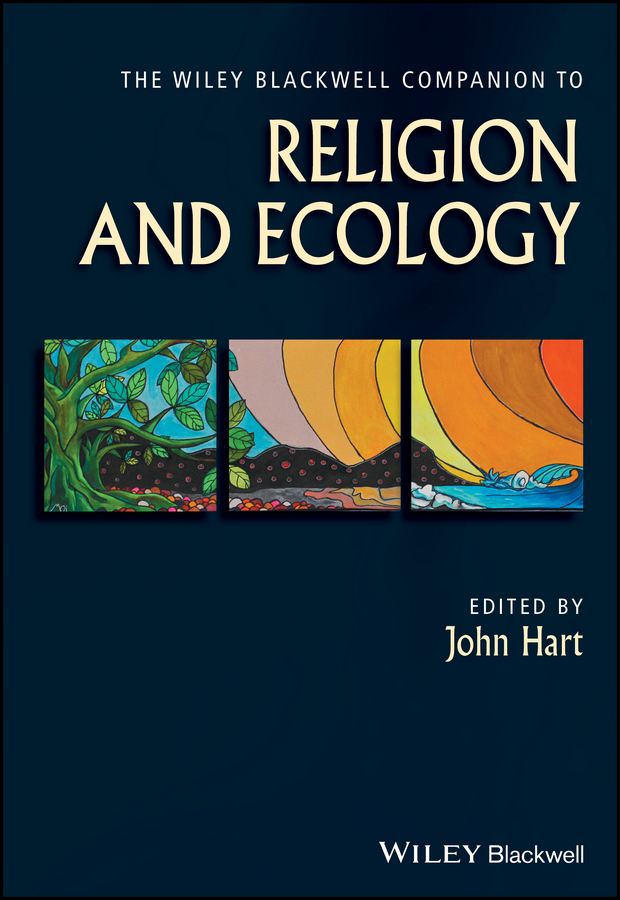Электронная книга: John Hart «The Wiley Blackwell Companion to Religion and Ecology»

|
In the face of the current environmental crisis—which clearly has moral and spiritual dimensions—members of all the world’s faiths have come to recognize the critical importance of religion’s relationship to ecology. The Wiley Blackwell Companion to Religion and Ecology offers a comprehensive overview of the history and the latest developments in religious engagement with environmental issues throughout the world. Newly commissioned essays from noted scholars of diverse faiths and scientific traditions present the most cutting-edge thinking on religion’s relationship to the environment. Initial readings explore the ways traditional concepts of nature in Christianity, Judaism, Islam, Buddhism, and other religious traditions have been shaped by the environmental crisis. Readings then address the changing nature of theology and religious thought in response to the challenges of protecting the environment. Various conceptual issues and themes that transcend individual traditions—climate change, bio-ethics, social justice, ecofeminism, and more—are then analyzed before a final section examines some of the immediate challenges we face in caring for the Earth while looking to the future of religious environmentalism. Timely and thought-provoking, Companion to Religion and Ecology offers illuminating insights into the role of religion in the ongoing struggle to secure the future well-being of our natural world. With a foreword by Ecumenical Patriarch Bartholomew I, and an Afterword by John Cobb Издательство: "John Wiley&Sons Limited"
ISBN: 9781118465547 электронная книга Купить за 12659.41 руб и скачать на Litres |
John Hart
John Hart (c. 1713 – May 11, 1779) was a Delegate from
Ancestry
Sources disagree as to John Hart's year and place of birth. Some place his birth as early as 1707 in
Personal life
By 1739 John Hart had acquired his own farm near Hopewell, and in 1741 he married Deborah Scudder. The couple would have thirteen children: Sarah, Jesse, Martha, Nathaniel, John, Susannah, Mary, Abagail, Edward, Scudder, Daniel, and Deborah, of whom only Daniel and Deborah were still minor children at John Hart's death in 1779. Deborah Hart predeceased her husband, dying October 8, 1776.
Hart was a member of the PenningtonFact|date=July 2008 Presybterian Church, but in 1747 he donated a piece of land in his front meadow to local Baptists who had been seeking a place to build a church of their own. The location was known for some time thereafter as the Old Baptist Meeting House.
Political career
Hart was elected to the Hunterdon County
When New Jersey formed a revolutionary assembly (or provincial congress) in 1776 he was elected to it and served as its Vice President. Prior to June 1776, the New Jersey delegation in the
He served only until August of that year, then was elected Speaker of the newly formed
Actions During the War
In December 1776, the British advance into New Jersey reached Hunterdon County. A marked man due to his status as Speaker of the Assembly, the elderly Hart was obliged to escape and hide for a short time in the nearby
Prior to the
Death
On November 7, 1778, John Hart returned to Hopewell from the Assembly in Trenton. Two days later, he indicated that he was too ill with "gravel" (
The following obituary for John Hart appeared on May 19, 1779:
ources
Further reading
*Hammond, Cleon E. "John Hart: The Biography of a Signer of the Declaration of Independence". Newfane, VT: Pioneer Press, 1977.
External links
*Find A Grave|id=2731
Источник: John Hart
Другие книги схожей тематики:
| Автор | Книга | Описание | Год | Цена | Тип книги |
|---|---|---|---|---|---|
| John Hart | The Wiley Blackwell Companion to Religion and Ecology | In the face of the current environmental crisis—which clearly has moral and spiritual dimensions—members of all the world’s faiths have come to recognize the critical importance of religion’s… — John Wiley&Sons Limited, электронная книга Подробнее... | 12659.41 | электронная книга |
См. также в других словарях:
Relationship between religion and science — Part of a series on Science … Wikipedia
Industrial and organizational psychology — Psychology … Wikipedia
Anthropology — This article is about the social science. For other uses, see Anthropology (disambiguation). Anthropology Fields Archaeology Biological an … Wikipedia
Hallux — Dedos gordos en la escultura … Wikipedia Español
Karl Marx — Marx redirects here. For other uses, see Marx (disambiguation). Karl Heinrich Marx Marx in 1875 Full name Karl Heinrich Marx Born 5 May 1818 Trier, Kingdom of Prussia … Wikipedia
Individualism — Part of a series on Individualism … Wikipedia
